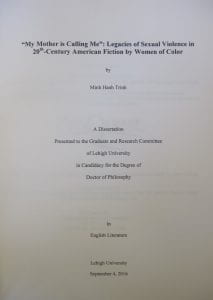Black History Month: African Americans and the Vote
Black History Month is the month-long celebration of African Americans in the United States. While this month originally started in the United States, other countries have also started to dedicate a month to Black History. This month can be a celebration of the literature, art, political figures, and labor that have contributed to the making of the American economy and culture as a whole. We look toward those figures who have advanced these areas, even when their contributions were considered radical.
In addition to the theme of Black History, 2020 marks the 100th anniversary of women’s suffrage. To address both of these topics, we should discuss the black women who strove towards gaining the right to vote and gain political representation. In the late 1800s, at the peak of the Suffrage movements, Black women worked in schools and churches promoting the ideas of equality of voting, so that everyone could have a say in what was happening in the United States. Unfortunately, many of the suffrage organizations, even those including black men, didn’t allow black women to participate in movements, creating a divide for black women. For this Black History Month, we remember the role black women played in the goal of getting closer to having the right to vote, even though they did not gain this right until 1920.
Here in Special Collections, we have a few books that talk about the issue of being a black woman in America. One is a dissertation titled “My Mother is Calling Me”: Legacies of Sexual Violence in 20th-Century American Fiction by Women of Color by Minh Hanh Trinh. It follows the meaning of books such as Their Eyes Were Watching God by Zora Neale Hurston as well as other books. The second book is Upon These Shores by William Scott, which highlights the Black experience from the 1600s to the Present. There are a few chapters that highlight Black Feminism. The topics of Black History and women’s suffrage deserve increased research and greater prominence, which can be furthered by exploring library and Special Collections resources.




